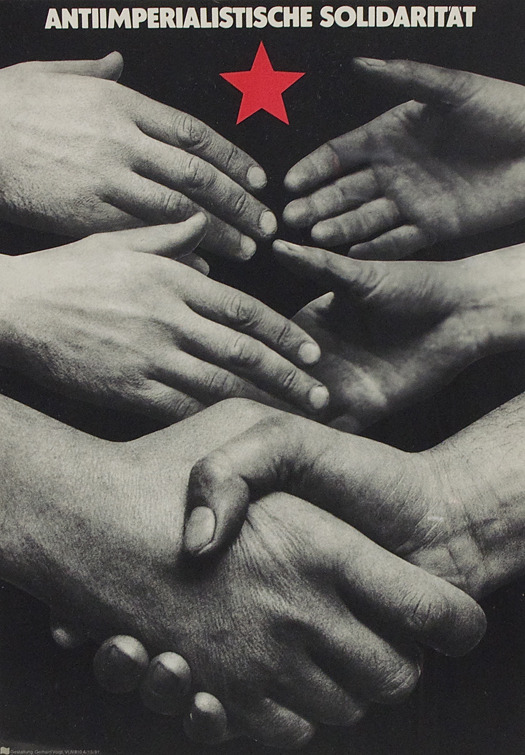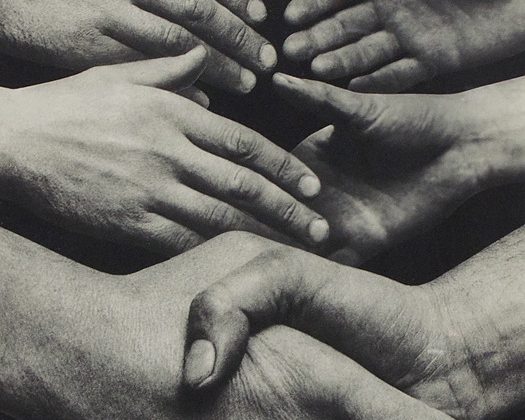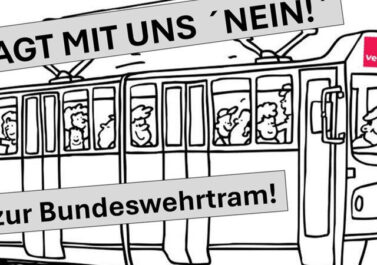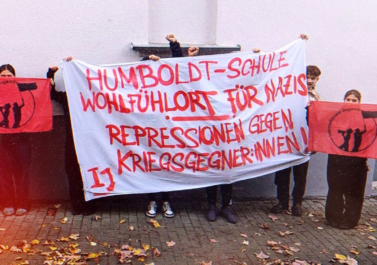
We translated these points from German. They are indeed very general points, but perhaps they have to be made in these times. We don’t adhere to an ‘uncompromising pacifism’, but insist on the need for proletarian mass violence and autonomous guerilla action against state oppression as a tactical means distinct from military and national warfare.
(1) The current wars – Russia against Ukraine, in the Near and Middle East (Gaza, West Bank, South Lebanon, Yemen, Syria, Iraq, Israel against Iran) and in Africa (Sudan, Sahel) are acute constellations of an imperialist struggle for the redivision of the world, which began after the global economic and financial crisis of 2008/2009. The era of global free-market radicalism, which dominated the world system for forty years, is coming to an end. A new era of protectionism and state intervention has begun.
(2) All the major powers are developing central planning systems to increase their potential for economic and military power. They are replacing market-regulated global economic interdependencies and opening up a new era of how capital is reproduced.
(3) Even the half-hearted programmes to combat the rapidly advancing ecological catastrophe are being scaled down in favour of the new militarisation and tendencies towards a war economy.
(4) A major driving force behind the decline of neoliberalism was the global struggles of the working classes and social movements against environmental destruction. They have transformed the radical market dogmatism in recent decades and blocked the further intensification of the exploitation of labour and nature. Now those in power try to force them into the Procrustean bed [1] of state intervention and armament and set them against each other on the battlefields of the coming wars. At the same time, the threat to the next generation is growing through the accelerated destruction of natural resources and the environment.
(5) The main players in the newly revived conflict over raw materials, markets, technological supremacy, spheres of influence and cultural hegemony are the declining imperialist hegemonic power USA with its the associated great powers EU, Japan, Great Britain-Australia, Israel and Saudi Arabia on the one hand, and the rising imperialist hegemonic power China, and its camp of Russia, Belarus, Iran and North Korea on the other. The other major powers of the Global South – India, Brazil, Indonesia and South Africa – have not yet agreed on any further-reaching association with one of the hegemonic powers, but appear to be leaning in favour of the Chinese-dominated power bloc.
(6) There are clear signs of a global bloc formation under the leadership of the rival imperialist hegemonic powers. At the centre of this is the arms race, which has now also reached lower-ranking regimes. In contrast to the Cold War, the main objective is no longer the deterrence of the enemy camp, but rather the ability to be ‘ready for war’ within five to ten years. Thereafter, in the event of further escalations, the accumulated military potential is to be deployed in major wars and utilised at the cost of high and civilian casualties in order to impose its own war aims on the enemy powers.
(7) This unmistakable tendency towards an imperialist bloc formation is countered by the still far-reaching economic interdependence of the leading national economies when it comes to transcontinental production and supply chains and to a globally operating financial sector, which is still dominated by the US dollar as the world currency. As long as the US state as the declining hegemonic power does not completely oust its emerging counterpart from the global financial and trading system, China is unlikely to begin to use its recently intensified economic relations with Russia, Central Asia, Iran, Africa and Latin America to build an independent economic, financial and monetary bloc. Only then would the bloc formation of the imperialist superpowers become a reality. And then the path for a Third World War would be paved.
(8) At present, the power bloc controlled by the USA still has clear military superiority, but this is weakening from year to year. There is therefore a danger that it will decide to wage a pre-emptive war against the rival power bloc while its superiority still remains.
(9) The structures of war economy that develop within all imperialist regimes have serious political consequences. The respective political systems of rule (dictatorial, authoritarian, presidential-democratic, representative-parliamentary, etc.) are converging worldwide. In all continents and countries, public opinion, which has been deformed into a commodity, becomes increasingly subjected to the control of political regimes. This is leading to a strategic division of labour between media capital, governments and political classes. The common goal is to shape and streamline social discourse. It is to be orientated towards their aggressive-imperialist objectives. The internal security apparatuses are responsible for suppressing oppositional movements. They are being developed into instruments of an internal state of siege. However, there is considerable resistance to this process of streamlining public opinion. It will continue to grow in the near future as more and more people realise that they are directly threatened by domestic and foreign policy developments.
(10) Overall, it can be assumed that the conflicting tendencies between the imperialist war preparations on one hand and the global economy on the other are slowing down the struggle over the redivision of the world. This means that the time frame determined by the arms race for a global military confrontation is being extended. Also coincidences play a significant role – such as the unintentional escalation of regional conflicts, the successes or failures of pre-emptive war proponents within the political decision-making centres, the escalation of humanitarian disasters, the major powers losing control over rival civil wars, economic crises, environmental disasters, nationalist and racist campaigns, etc. They can accelerate or slow down the overall development.
(11) These internal contradictions provide strategic windows of opportunity and concrete possibilities for action for a counter-perspective from below. They should be guided by the motto that goes back to Rosa Luxemburg: socialism or barbarism.
(12) Based on this slogan, an association of the various fragmented global social movements should be encouraged, which could be based on the following premises:
Social resistance is directed in a joint effort against all imperialist superpowers equally. Nowhere and at no time will it take sides with any of the rival great powers or work in their favour. The main opponent of any social movement movement is first and foremost its own imperialist regime and the military-industrial complex in its own country. This is an indispensable precondition for building a continental and global association. It will not always be easy to adhere to these principles in the complex mix of regional conflicts. However, we must insist on this. In the Gaza war, for example, the Palestinian resistance, dominated by the reactionary Islamist Hamas, and the military, apartheid and settler state of Israel confront each other. Both sides have committed terrible war crimes. Again, we cannot take sides with either side.
(13) The starting point for joint action is uncompromising pacifism: the fight against armament programmes, the war economy, military recruitment systems and militarism at all levels of analysis through counter-information, political practice and concrete action (desertion campaigns, blockades of arms companies, transports and army bases, etc.). Social struggles in all their facets should be included in these joint perspectives for action. They find their practical intersections in the common struggle against military and forced service and in the refusal of labour for re-armament and war research. Their common conceptual basis is the socialist counter-proposal of a peaceful, egalitarian, grassroots democratic and self-organised society beyond capitalism, patriarchal hierarchies, racism and the nation state.
(14) This counter-perspective requires an empirically, historically and theoretically proven foundation. Working groups should be set up with the aim of analysing the strengths and weaknesses of the historiography on the prehistory of the World Wars and the theories of imperialism that have been developed to date. On this basis, a discussion about long-term counter-perspectives could be initiated. Its results should be used as a basis to advance the development of social resistance worldwide and to homogenise it. As a platform for globally associating resistance, they should be repeatedly and critically scrutinised and revised. This would ensure that the learning processes are constantly reflected upon and translated back into practical action.
(15) Global society and the planet are heading towards a double catastrophe: a new era of devastating major wars, which may be fought with nuclear weapons, and an equally threatening environmental catastrophe. In view of this development, it has become a question of survival for the left to attempt the unthinkable right now. Its task is to once again build a globally effective counter-power that can counter the rampage of the imperialist superpowers and the destruction of nature. Let us dare a new anti imperialist attempt. If we succeed in linking it with the struggles of the working classes and the social movements against environmental destruction, the new awakening has a chance. Let’s use it!
Initiative group Socialism or Barbarism / April 2024
Footnote:
[1]
Procrustes was one of many villains defeated by the Greek hero Theseus. According to Greek mythology, Procrustes was a robber who killed his victims in a most cruel and unusual way. He made them lie on an iron bed and would force them to fit the bed by cutting off the parts that hung off the ends or by stretching those people who were too short. Something Procrustean, therefore, takes no account of individual differences but cruelly and mercilessly makes everything the same. And a “procrustean bed” is a scheme or pattern into which someone or something is arbitrarily forced.



